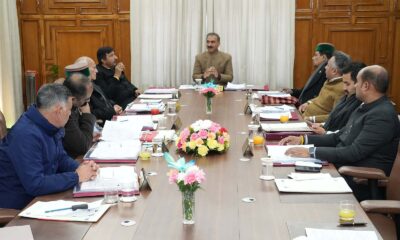Law & Justice
“Shimla Town Hall’s” Dignity Restored as High Court Bars its Conversion into Govt Office
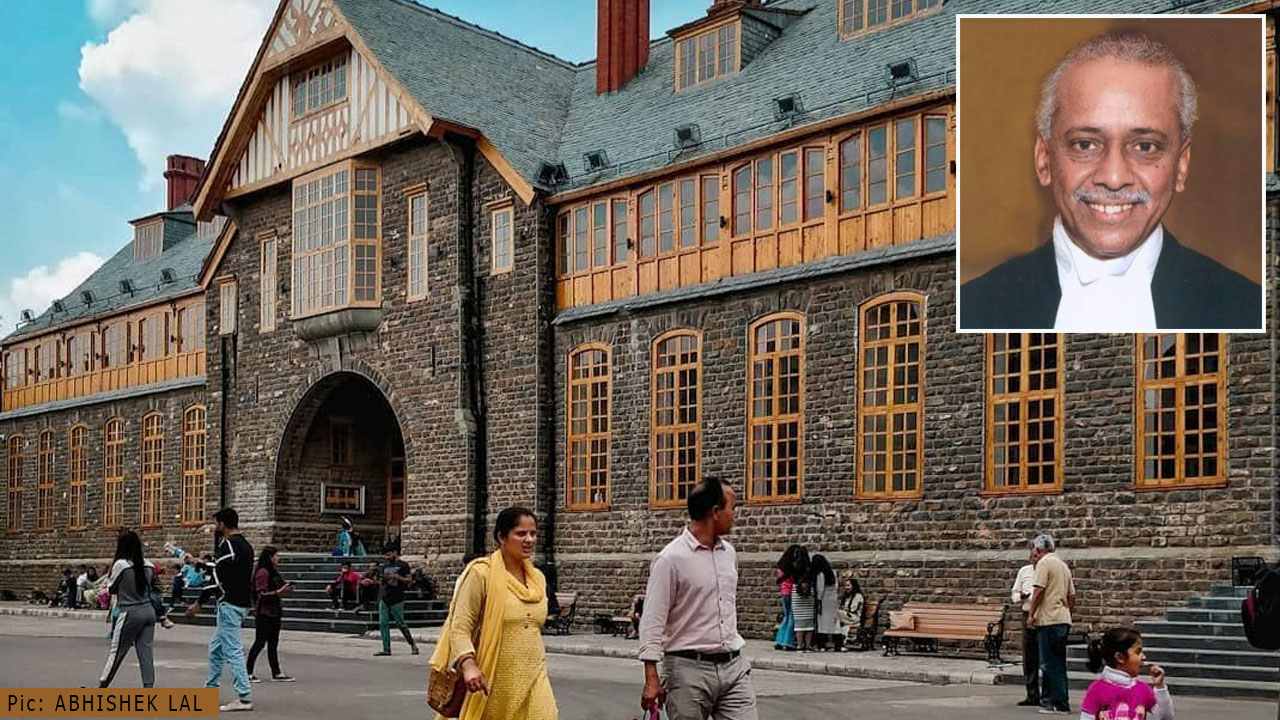
Shimla-The issue of utilizing the British-era Town Hall building for ‘public purpose’ and not as a ‘Government Office’ was settled by the Hon’ble High Court today in a public interest writ. The Municipal Corporation building or the Town Hall is located on the Mall Road. Originally this heritage building was designed as ‘New Library and Offices’ by a Scottish Architect, Mr James Ransome. The original building, designed as a library, was constructed in 1908, but after a few decades, the offices of the Municipal Corporation came to be located in the said building.
Recently, this heritage site was restored under an exhaustive Rs 6 crore conservation project. Asian Development Bank-funded the restoration of the building, stating it to be a “priceless architectural marvel”.
A Division Bench comprising of Chief Justice V Ramasubramanian and Justice Anoop Chitkara on September 6, 2019, passed an order, which stated that the building should be used only for ‘public purposes’ and not to house any ‘Government Office’ other than that of the Mayor and Deputy Mayor.
The Hon’ble Chief Justice V Ramasubramanian stated:
While there can be no objection to the location of the offices of the Mayor and the Deputy Mayor in the Town Hall, the location of the offices of the Commissioner and other allied officers will certainly convert the heritage building into a full-fledged Government office. While the Mayor and the Deputy Mayor may not be required to sit throughout the day in the office, the Commissioner and his Deputies may be required to sit in the office throughout the day for six days a week. They may also have to deal with the public, who may have to seek the services of or the statutory.
Further, the Hon’ble Chief Justice stated:
We are of the considered view that while permitting the Municipal Corporation to locate the offices of the Mayor and the Deputy Mayor in the Town Hall, the Municipal Corporation, in consultation with the Government, should come up with innovative ideas to put the Town Hall to best use (i) from the point of view of preserving the heritage, and (ii) so as to derive income from such activities which will showcase the beauty of the hill station and the culture and traditional arts of the people of the State”
As such, the MC Commissioner, Joint Commissioner, and other officials whose offices were located in this heritage site will now have to be accommodated elsewhere.
The court also directed that the MC in consultation with the state government may put to use the rest of the area for housing a high-end café with reading facilities, Information Centre and boutique of traditional arts and crafts for attracting tourists and enriching the cultural experience. The court also directed that an entry fee can be imposed which will provide handsome revenue to the MC.
There was a long-term demand from civil society and citizens that the iconic building must be put to some good use and be developed as a tourist attraction, considering its location in the heart of the town. Today’s order comes as a welcome step for the people of the town and for those who are visiting it.
This heritage building will no longer be a dwelling place of the “babus”, but rather will be a center of attraction – a place to showcase the heritage, art, and creativity of the locals and a place of recreation and learning for the travellers.
(The post was first published in https://lawumbrella.wordpress.com/ )
Feature Image: Abhishek Lal
HW Community
Response of Judiciary to India’s Migrant Crisis During Lockdown- Part-II
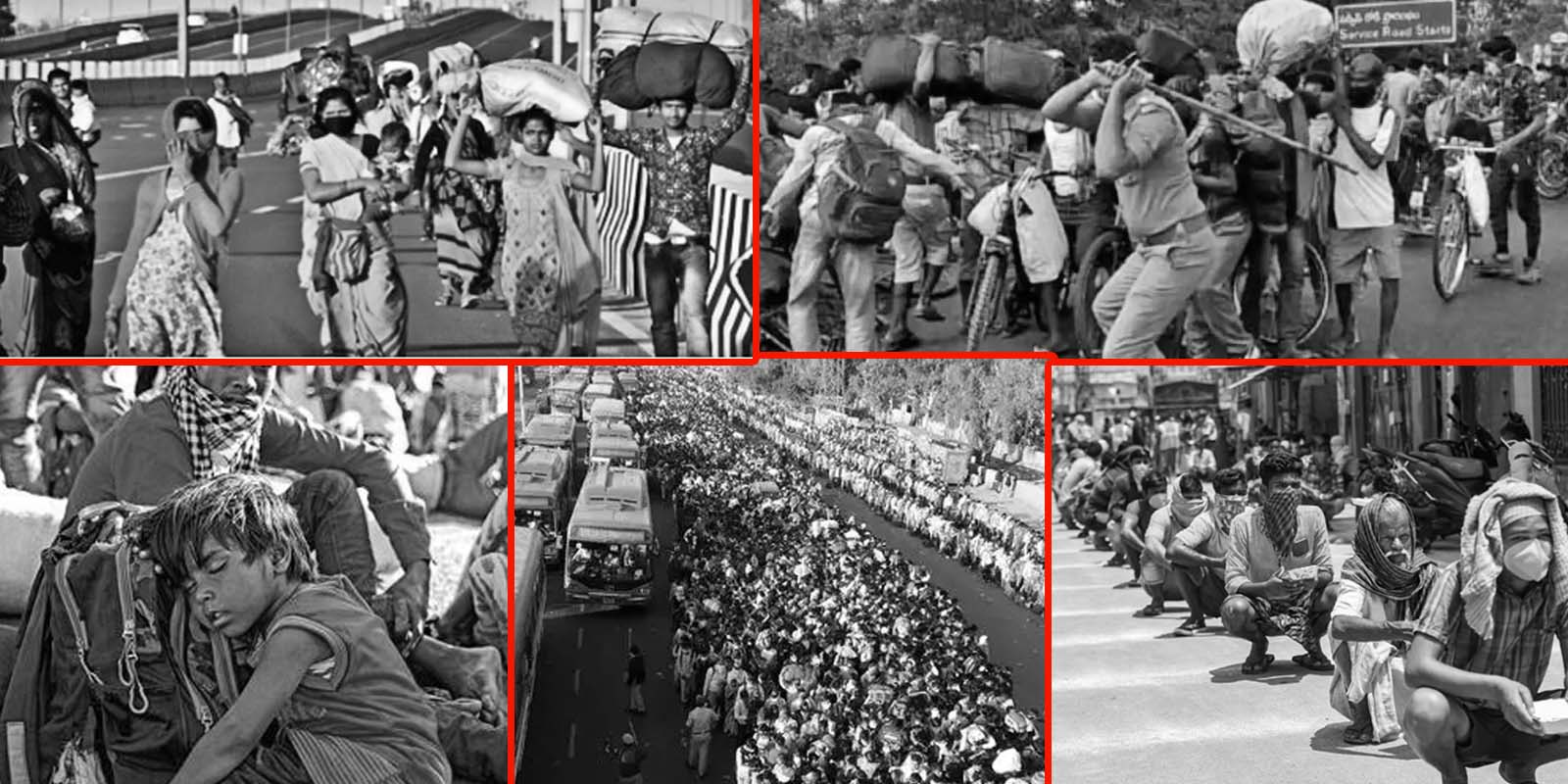
Shimla--The real competency test for the Nation isn’t ordering lock-down – it’s coming out of it. Some of the questions facing us amid these crises are; How civilized we are as a nation during this time of scarcity and fear? Are we helping the poor and needy or are we allowing them to be disproportionately impacted by this lockdown? Do we have adequate shelter homes for Migrant workers? Do we have enough food and transportation arrangement for them? Did our Government and administration use this expensive time of lockdown to prepare to “test and track” infected individuals, make provision for providing masks to the population, build isolation facilities, and other required medical facilities? These questions are haunting our nation in the present and will haunt us in the future too.
In this series of articles, we are discussing the role that judiciary has played during the time of this crisis. We have already gone through three orders of the Patna High Court.
Also Read: Response of Judiciary to India’s Migrant Crisis During Lockdown Part-I
Last month Madras High Court issued an order laced with emotion, something unusual for the courts. In a habeas corpus petition asking the government to produce 400 Tamil workers stuck in Maharashtra, a bench observed:
“One cannot control his/her tears after seeing the pathetic condition of migrant labourers shown in the media for the past one month. It is nothing but a human tragedy.
It is very unfortunate that those persons were neglected by all the authorities. The heart breaking stories are reported in the print as well as visual media that millions of workers were compelled to start walking to their native States with their little children carrying all their belongings over their head, surviving on the food provided by good Samaritans, as no steps were taken by the Governments to help those migrant workers.
..it is a pity to see the migrant labourers walking for days together to reach their native places and in the process, some of them had lost their lives due to accidents. The Government authorities of all the States should have extended their human services to those migrant labourers.”
In another case, the Andhra Pradesh High Court cited disturbing news reports to order the state government to take specific measures under seven different heads, including medical, transportation and food.
The court began the order thus:
“This court notices that the labour who have left their ancestral homes and villages and moved to the cities for better livelihood to ensure that all of us live in comfort are on the roads today.
If at this stage this court does not react and pass these orders, this court would be failing in its role as a protector and alleviator of suffering.”
The Karnataka High Court has directed the governments to decide on paying the transportation cost of workers going back to their villages and towns. It reminded the governments of the huge contribution the workers have made to the country’s development, insisting that the executive should come forward to help them at a time when they have lost their livelihoods.
TheDelhi High Court has also taken up this issue and has sought the response of the governments. Further, it has asked the government to take “all care” for repatriation of migrant workers, as and when they approach their concerned nodal officer and has directed
“So far as restoration of helpline number is concerned, we direct the Delhi government to ensure the uninterrupted working of their helpline number so that people may approach the Nodal Officers through the helpline numbers. The very purpose of helpline number is to help the people and, therefore, the same must be functional.”
The Gujrat High Court also took up the matter Suo Moto and observed:
“Everyday hundreds of migrant workers with children are seen in different parts of the state, more particularly on the highways. Their condition is pathetic. They are living in the most inhumane and horrendous conditions. As we have observed earlier, although all necessary steps are being taken by the state government, more modalities need to be worked out at the earliest to ease the suffering of the people at large.”
In another case the Uttrakhand High Court took notice of the Report filed by District Legal Services Authorities which stated that;
“…quarantine centers which have been established at Village level are the worst of the lot.”
No facilities in these centers to provide food to the inmates. Food is being provided by the villagers and the family members of the inmates.
In many of these quarantine centers where the inmates are more than 20 to 30, there are only 1 or 2 toilets. What is most shocking is that the hygienic condition of these toilets is also extremely poor.
Apart from this, many of the toilets which are in urban areas are in bad conditions, as these toilets are not being cleaned regularly.”
The Court directed the Secretary, Health and the Secretary, Disaster Management, Government of Uttarakhand, to pass appropriate orders to District Magistrates so that their Order dated 4th May 2020 be implemented in letter and spirit and so that there are enough of funds with the “Gram Sabhas” to manage and run these quarantine centres. Secretary, Health, Government of Uttarakhand and the concerned District Magistrate were directed to remove all the shortcomings in these quarantine centres.
Court also observed,
What is absolutely necessary is to maintain the quarantine centers at village level, for which proper funds be provided to the “Gram Sabhas”, as contained in the Government Order dated 04.05.2020, for which there has to be a proper coordination between District Magistrates and the panchayat level officers and the elected representatives of the people.
Matter be listed on 17th June 2020. [Sachdanand Dabral v. UOI, WP (PIL) No. 58 of 2020].
In another case, the Allahabad High Court ordered the State Government to ensure that persons who have completed their quarantine period be released from the Quarantine Centres provided they have tested negative. The Order stated;
‘Persons, who have completed their quarantine period and have tested negative can not be further detained in the Quarantine Centers against their wishes. It would be in violation of personal liberty under Article 221 of the Constitution of India.’
The Bench also directed the Chief Secretary, State of Uttar Pradesh to set up a three members committee in every district to ensure smoother, greater and more effective functioning of the Quarantine Centers.
(The post was first published in https://lawumbrella.wordpress.com/ )
(To Be Continued)
HW Community
Video of Child Trying to Wake up His Dead Mother- Court Takes Cognizance
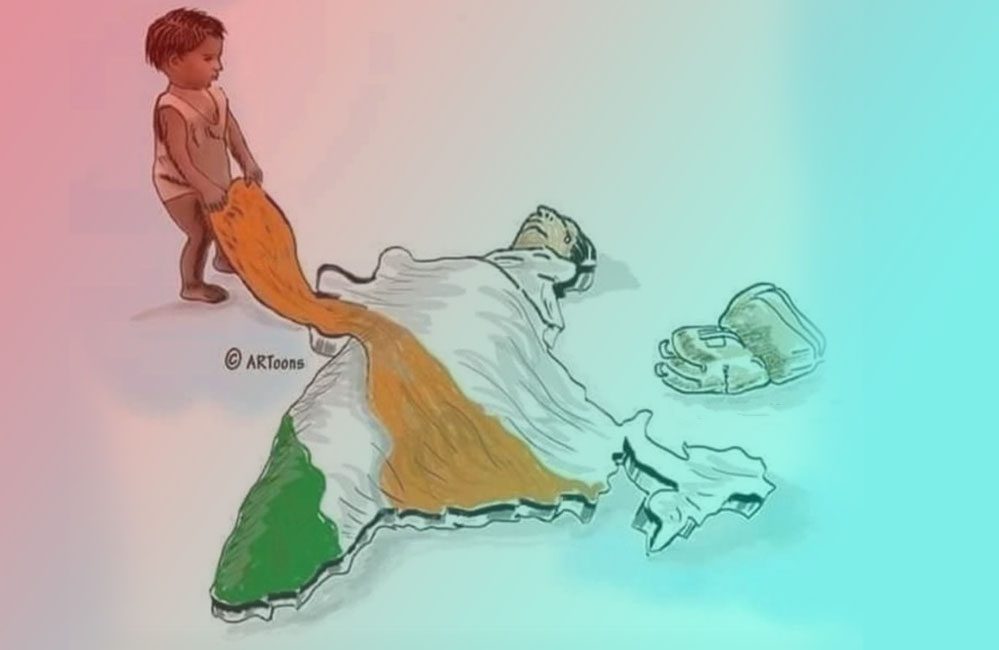
Shimla-A Division Bench headed by Sanjay Karol. CJ., had taken suo motu cognizance of a news article of the newspaper Times of India dated 28th May 2020 wherein an item reads as “Video of a child trying to wake up his dead mother goes viral.”
Justice S. Kumar invited the attention of Chief Justice of the Court to a newspaper article wherein the portion talks about a “Video of Child trying to wake up his dead mother goes viral.”
A video of a toddler trying to wake up his dead mother lying on a railway platform has gone viral on social media. The child can be seen removing a shawl covering his mother’s body.
The Bench stated if the items as stated in the news report are correct of which it has no reason to disbelieve. This warrants intervention in exercise of jurisdiction under Article 226 of the Constitution of India, taking suo motu cognizance of the said news item.
Bench laid the following issues for immediate attention:
-
Whether the postmortem of the dead-body was conducted? If yes, what was the cause of death? Did the lady actually die of hunger?
-
Was she travelling alone with her sibling ? If not, who all were her companions,
-
What action stands taken by the law enforcing agencies,
-
Were the relatives of the deceased informed of the incident,
-
Were the last rights of the deceased performed as per the custom, tradition and the instructions issued by the government, and
-
Above all who is now taking care of the children/sibling(s), who unfortunately lost their mother in these times of distress.
Bench before giving any order directed Additional Advocate General-IX to obtain instructions on the above issues.
The AG stated that the news report is partially incorrect. Deceased was mentally unstable and had died a natural death during the course of her journey. District Administration facilitated by providing an Ambulance up to the place of destination. The orphaned child is in safe custody and guardianship of the sister of the deceased.
Further AG stated that even though the child is safe and secure, yet he shall personally pursue the matter with the authorities who would again reach out to the family, enquiring any need of assistance.
The matter was again taken up on 3rd June and the following order has been passed:
Our concern, as indicated in earlier order dated 28th May, 2020, have not been adverted to and as such, as prayed for, we grant three days’ time to the respondents to file an affidavit. Let needful be done on the affidavit of the Additional Chief Secretary, Department of Home, Government of Bihar.
The matter is now Listed for 8th of June, 2020.
(The post was first published in https://lawumbrella.wordpress.com/ )
HW Community
Academic Merit of “Doctors” Must Reckon Services Rendered for ‘Common Good’
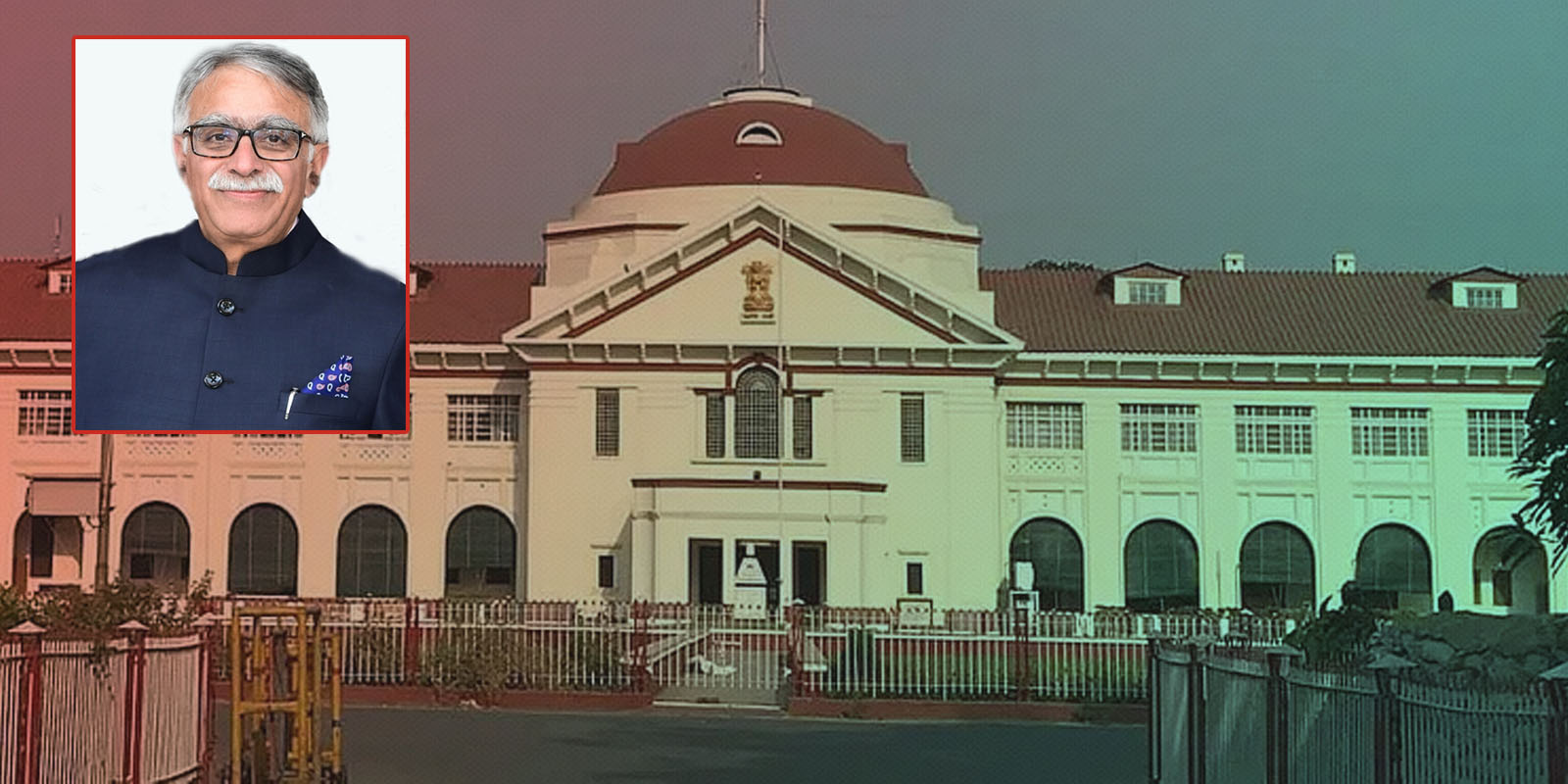
Shimla-For securing ‘Right to Health’ and medical facilities by ensuring an adequate number of doctors in the rural areas, an important order has been passed by the ‘Patna High Court’ in the current situation of a Pandemic. The Order is in line with judiciary’s endeavour to fulfil its obligation towards securing social justice for the poor and especially for the people living in rural parts of our country.
The Court has essentially said that to determine the academic merit of (Doctors) candidates, merely securing high marks in NEET is not enough. The academic merit of the candidate must also reckon the “services rendered for the common or public good.” Having served in rural and difficult areas of the State for one year or above, the incumbent having sacrificed his career by rendering services for providing healthcare facilities in rural areas deserves incentive marks.
A Division Bench comprising of Chief Justice Sanjay Karol ordered,
“The Chief Secretary, Government of Bihar shall, with the normalization of the of the current Pandemic COVID-19, ensure that vacancies in the rural/ remote/ difficult areas are filled up to the maximum extent possible, either by transfer or expediting the process of recruitment.”
The court took notice of the fact that in the state out of 11645 sanctioned posts of doctors, 8768 were lying vacant, out of which 5674 fell in the difficult/remote/rural areas. And despite the same, Government chose to not grant incentive of weightage in marks in NEET test, to the doctors posted in these areas. It went on to observe that the State Government is “neglecting” rural areas by taking these measures and catering to ‘vested interests’ by only posting the majority of the doctors in urban areas.
The Court directed the concerned authorities to redraw the merit list strictly by the law which in the instant case were ‘two notifications’ issued by the State. The said notifications granted benefit for service in rural areas but was not being implemented.
In the stand taken in court, the State had justified its decision of not granting the above benefit stating that “the merit would stand compromised and would adversely affect the in-service doctors posted at urban areas.”
However, the Division Bench disagreed, stating;
“Can a Welfare State even adopt such a stand more so in the absence of any plea or material to indicate absence of doctors or higher percentage of vacancy of the posts in the urban areas?”..
…”Incentivizing posting of doctors/medical staff in the specified areas can only be in public interest and for public good and not the other way round. Under the Constitution all power must be exercised to subserve public interest, for public good and for a public cause. If only such benefits are accorded would the Doctors voluntary opt to serve the poor, the needy, the deprived and the marginalized ones living in the remotest corner of the State.”
The Division Bench opined that if the State Government has found that circumstances warranted the need for such incentives, “then the State could not and should not deny such incentive.”
“Undoubtedly discretion of according benefits, vests with the Government, but then, its exercise has to be based on some rational and not in an arbitrary and capricious manner. There is no logic of depriving the doctors posted in the rural areas of such benefits.”
The Court went on to pull up the Bihar Government for having admitted, through notifications issued in 2013 and 2014, that there were difficult/ remote areas in need of doctors on the one hand while denying to provide incentives to fill in these vacancies on the other.
“Strangely, if not collusively, it has taken a specious plea of interpreting such a Notification limited only to the identification of areas in terms of the Regulation and not taking a decision conferring benefits in terms thereof. Such a stand is both immoral and illegal.”
“The power to grant incentive is discretionary, but then having done so, State cannot be allowed to turn around and contend to the contrary, notwithstanding as to whether such benefit was neither claimed nor conferred upon any individual. Mere non-enforcement of a right by an individual or its non-conferment upon by the State would also not be a reason for the State to adopt such a dubious plea.”
The Court proceeded to dismiss the State’s appeals and issued the following directions:
- All candidates who have participated in the selection process, including the writ petitioners and are otherwise eligible, would be entitled to the benefit of 2013 and 2014 Notifications issued by the Government of Bihar;
- Provision in the prospectus to the contrary is held to be illegal and void
- The Bihar Combined Entrance Competitive Examination Board shall redraw the merit list strictly in accordance with law by granting benefit of 2013 and 2014 Notifications after accounting for the certificates/proof of eligibility, for grant of incentives in terms of Regulation 9(IV) issued by the MCI.

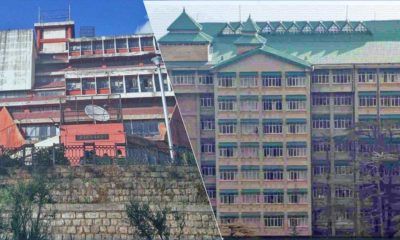

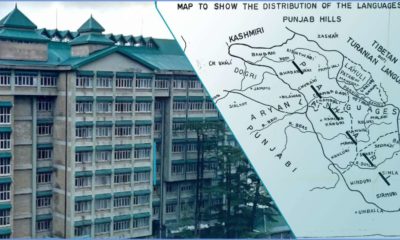









 Home Decor Ideas 2020
Home Decor Ideas 2020